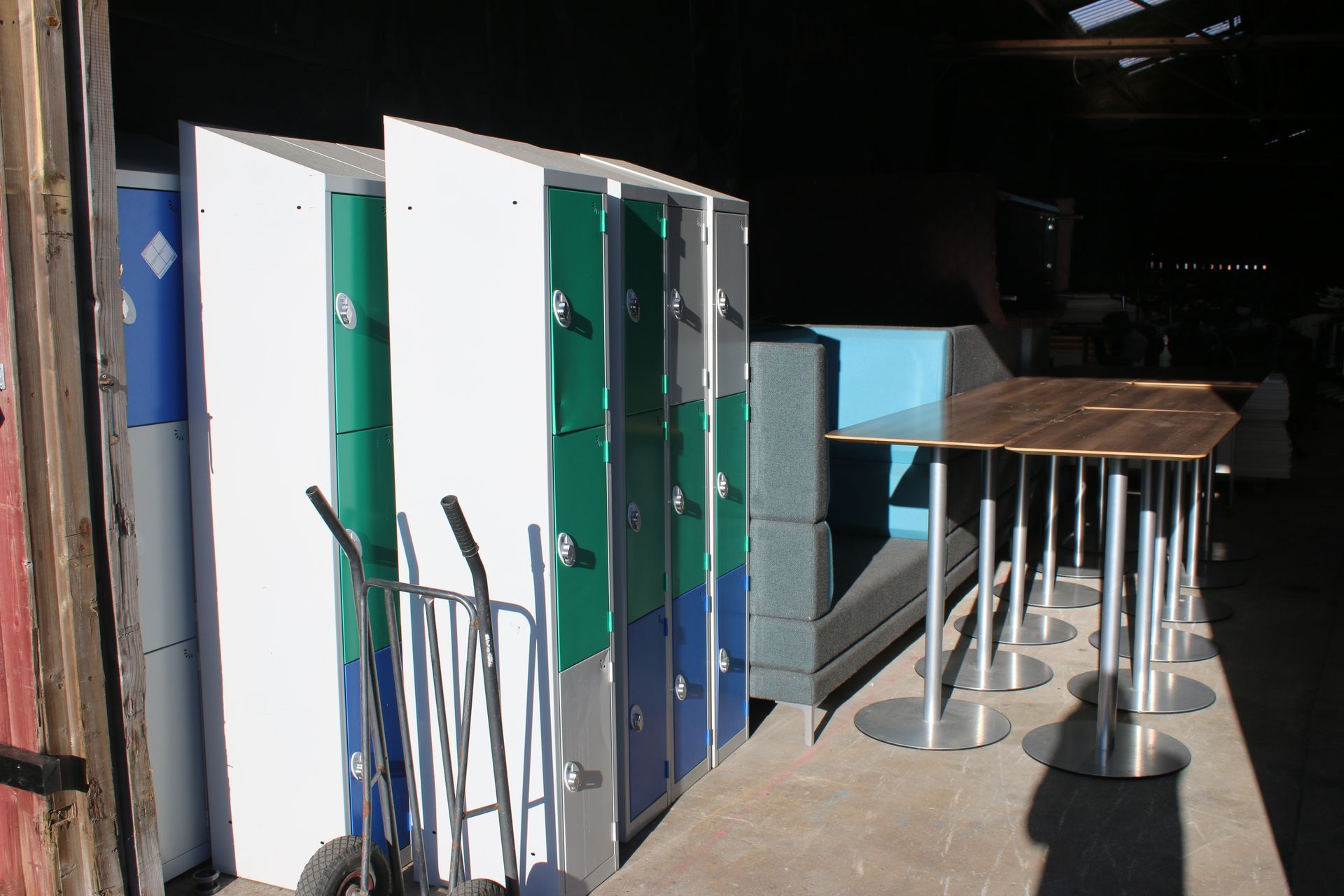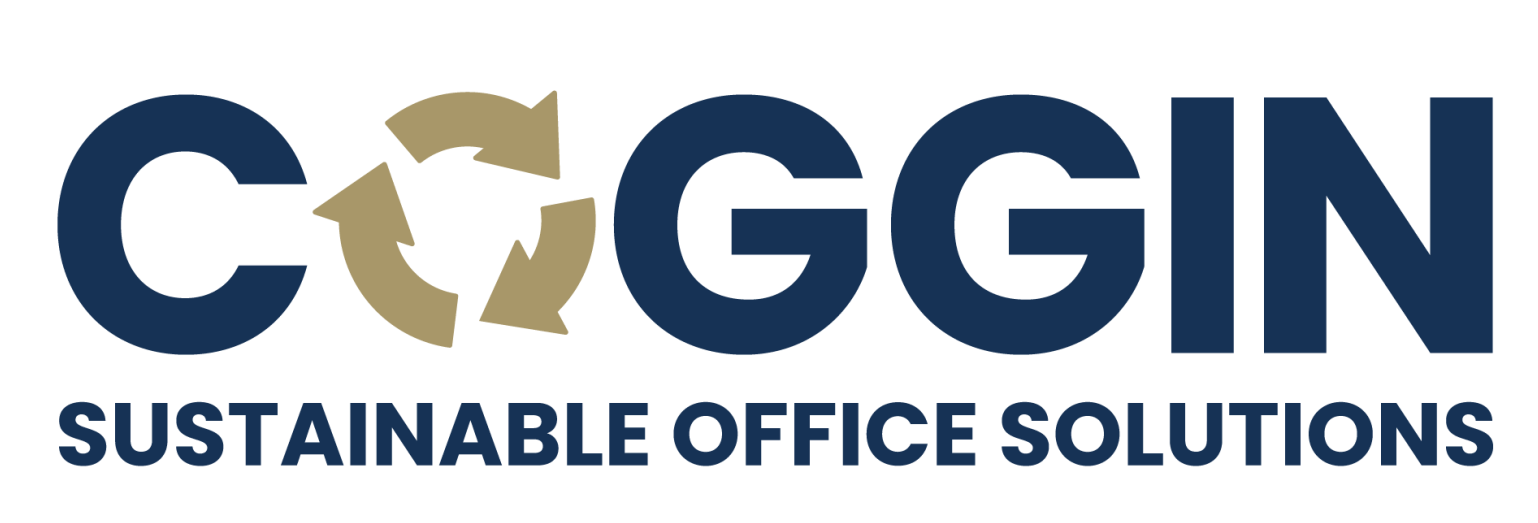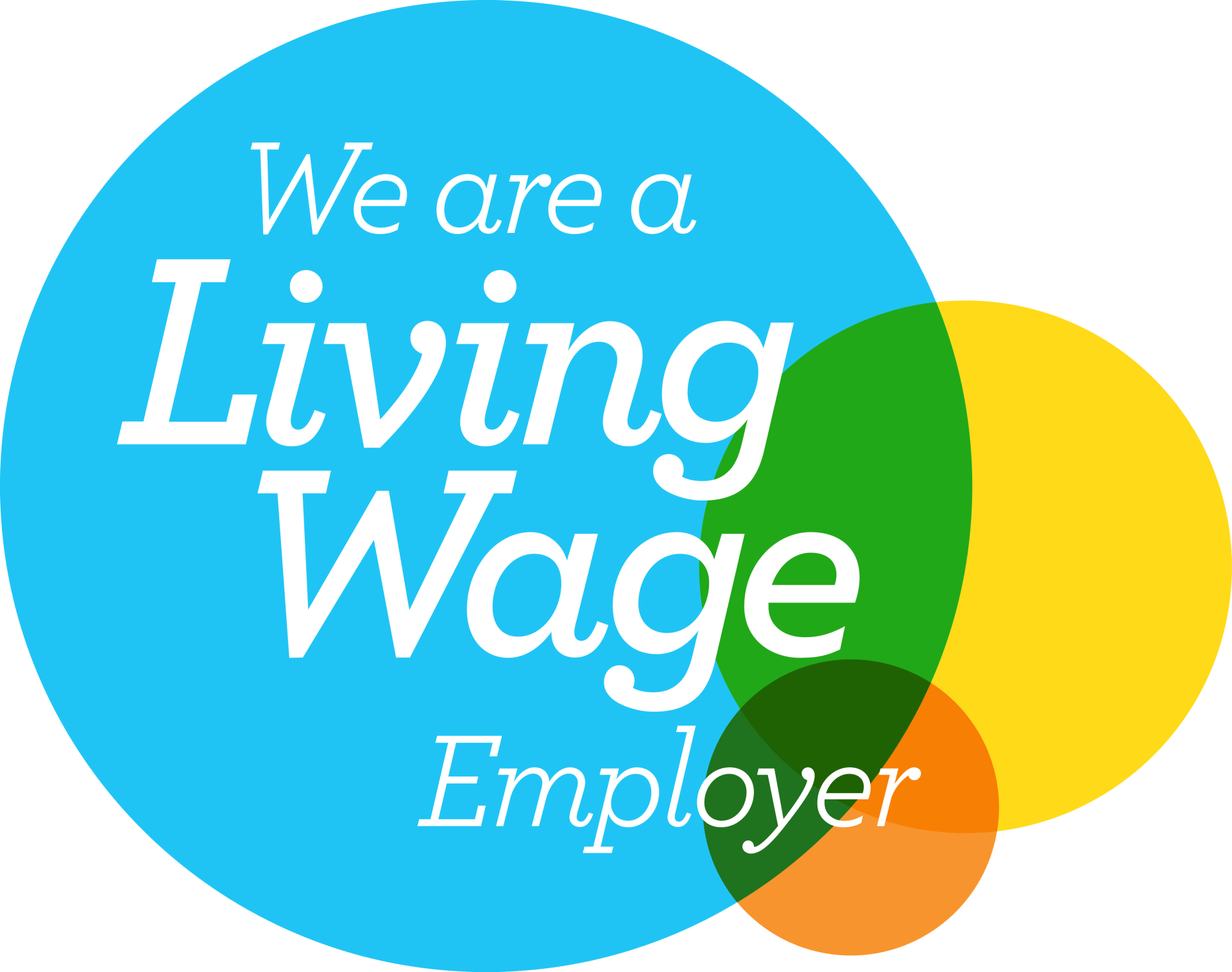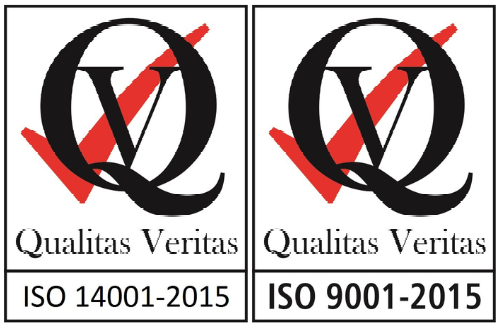The Business Case for Zero-Landfill Clearances: Sam Coggin on Office Furniture Recycling
Beyond The Skip: Smarter Ways to Handle Office Furniture Clearance
When your office needs to clear out old furniture, most companies think skips or removal services are the only options. But as landfill costs continue to rise and environmental rules get stricter, more businesses are learning there are better alternatives.
In this interview, Sam Coggin shares exclusive insights about office furniture recycling and how it can help your organisation
cut costs,
save time and
achieve ESG targets. Read on to get the inside scoop on zero-landfill office furniture solutions and what they offer organisations in 2025.
Q: What inspired you to start Coggin SOS's zero-landfill recycling service?
Sam: "The recycling solution stemmed from an internal issue-we were overstocked and needed a better way to process dead stock without sending it to landfill. This led us to break it down, which sparked the idea of offering the service to the market. It turns out they loved it!"
What began as solving our own inventory challenge has grown into a service helping organisations across the UK meet their
sustainability goals while addressing a common problem.
Is your organisation still sending office furniture to landfill?
Contact our
team to discuss better options today.
Q: What misconceptions do businesses have about office furniture recycling?
Sam: "Most businesses assume recycling means reusing a product as a whole, but there is a key difference. Reuse recycling involves refurbishing the product for direct reuse, while recycling means breaking it down into its raw materials, separating components, retaining usable spares, and recycling the rest. Thanks to our intensive breakdown process, we can guarantee zero landfill."
This distinction matters when you're working toward
net zero goals or demonstrating environmental responsibility to clients and stakeholders. A complete approach that includes both
reuse and
proper recycling gives you the best results for your green initiatives.
Q: How has your recycling approach evolved since Coggin SOS started?
Sam: "In the early days, it was very much a case of trial and error, with a focus on understanding what our clients needed. The key turning point for us was introducing our savings report. Initially, it was simply about tracking the products we received, but now we provide a comprehensive, in-depth report detailing both cost and carbon savings."
With our exclusive savings certificates and reports, you can show your management team exactly how much carbon your furniture decisions have saved, or report precisely how much waste you've kept from landfill.
Want to see your potential savings?
Book
a consultation with our team today and learn how our detailed reporting can strengthen your green credentials.
Q: What technological innovations are you excited about for the future of office furniture recycling?
Sam: "Product passports powered by blockchain have the potential to revolutionise the reuse and recycling process by providing complete transparency and traceability. By securely recording a product's entire lifecycle-from manufacturing and usage to refurbishment and recycling-these digital passports ensure accountability at every stage. This level of detail is crucial in an industry where greenwashing and unclear supply chains can make it difficult to verify sustainable practices. With blockchain, businesses and consumers can track materials, confirm ethical sourcing, and ensure compliance with environmental regulations. Additionally, product passports can help maximise resource recovery by providing detailed insights into the condition and composition of products, making it easier to determine whether they should be reused, repaired, or broken down for recycling. As the push for a circular economy grows, blockchain-powered product passports could become a game-changer, offering the trust and transparency desperately needed to create a more sustainable future."
Q: What happens to the materials once you break them down at Coggin SOS?
Sam: "We handle the shredding of plastic in-house, specifically polypropylene (PP) and polyamide (PA), breaking it down into regrind. This regrind is then purchased by a UK polymer compounder, who further granulates it so it can be reintroduced into the plastic manufacturing industry. Metal recycling continues to follow traditional, well-established methods, as little has changed in this process. Wood waste, such as MFC and MDF, is repurposed as a biofuel, including Refuse-Derived Fuel (RDF), which is used by power stations to generate heat and energy. The same approach is applied to foam and fabric, particularly in light of the new Persistent Organic Pollutants (POPs) regulations, ensuring compliance with the latest environmental standards."
By choosing Coggin SOS, every component of your old office furniture finds a new purpose-either as raw material for new products or as energy to power homes and businesses. Read our latest
circular economy analysis to find out more.
Q: What's been the most rewarding part of building Coggin SOS as a zero-landfill business?
Sam: "The most rewarding part is knowing that we are making a real difference and driving much-needed change in the industry. As an entrepreneur, I find it incredibly exciting to build a commercially viable business while simultaneously making a positive impact on the environment. The ability to innovate, challenge outdated practices, and contribute to a more sustainable future is what truly motivates me."
Q: Are there certain types of office furniture that present unique recycling challenges for your team?
Sam: "Yes, we still encounter manufacturers who fail to consider the refurbishability and recyclability of their products, which makes it significantly harder for us to efficiently repurpose and recycle office furniture. Poor design choices, mixed materials, and the use of non-recyclable components create unnecessary challenges, limiting the potential for reuse and increasing waste. Greater collaboration and a shift towards circular design principles are essential to overcoming these obstacles and improving sustainability across the industry."
This insight can inform your purchasing decisions. When choosing new office furniture, consider how easily it can be
recycled at the end of its life, if at all.
Unsure if your current furniture is easily recyclable?
Contact
our team to evaluate your inventory and develop a sustainable end-of-life plan.
Q: How do you see the office furniture recycling industry changing in the next few years?
Sam: "I believe suppliers are increasingly under pressure from new policies that demand a more sustainable approach. This shift will drive the development of better solutions and encourage innovation from third-party providers, ultimately supporting the circular economy. As regulations tighten, businesses will need to rethink their design and production processes, fostering greater collaboration and more sustainable practices across the industry."
At Coggin SOS, we're constantly evolving what we offer to stay ahead of these changes, helping our customers and partners maintain compliance and build a stronger market position through eco-friendly practices.
Q: What advice would you give to companies considering Coggin SOS for the first time?
Sam: "Find a reputable provider who isn't just focused on making a sale but genuinely wants to understand your existing processes and identify ways to support and improve them. The right partner will take the time to assess how you've been operating and offer tailored solutions that align with your sustainability goals. Once you embrace reuse, it becomes difficult to revert to outdated, wasteful practices-because the benefits, both environmental and financial, become too significant to ignore."
When working with our team at Coggin SOS, you will find that your business challenges are our starting point. We begin by diving deep into your current processes, because we know that effective solutions must be built around your specific needs and objectives-not the other way around.
Summing Up: Why Your Office Clearance Matters More Than You Think
As Sam shows us, throwing office furniture into skips isn't just wasteful, it's hitting your budget and environmental targets when better options exist. The money saved through proper recycling is just the start. Companies that choose zero-landfill solutions find themselves making smarter decisions about what they buy in the first place. Your team notices these choices too-people want to work for businesses that care about more than just the bottom line.
When you next clear your office, remember that your old office furniture doesn't have to become tomorrow's landfill problem. It could be the raw material for something new. While others are still filling skips, others are filling sustainability reports with measurable results. Which side of that divide will your organisation stand on?
Start the conversation about your next clearance project today.
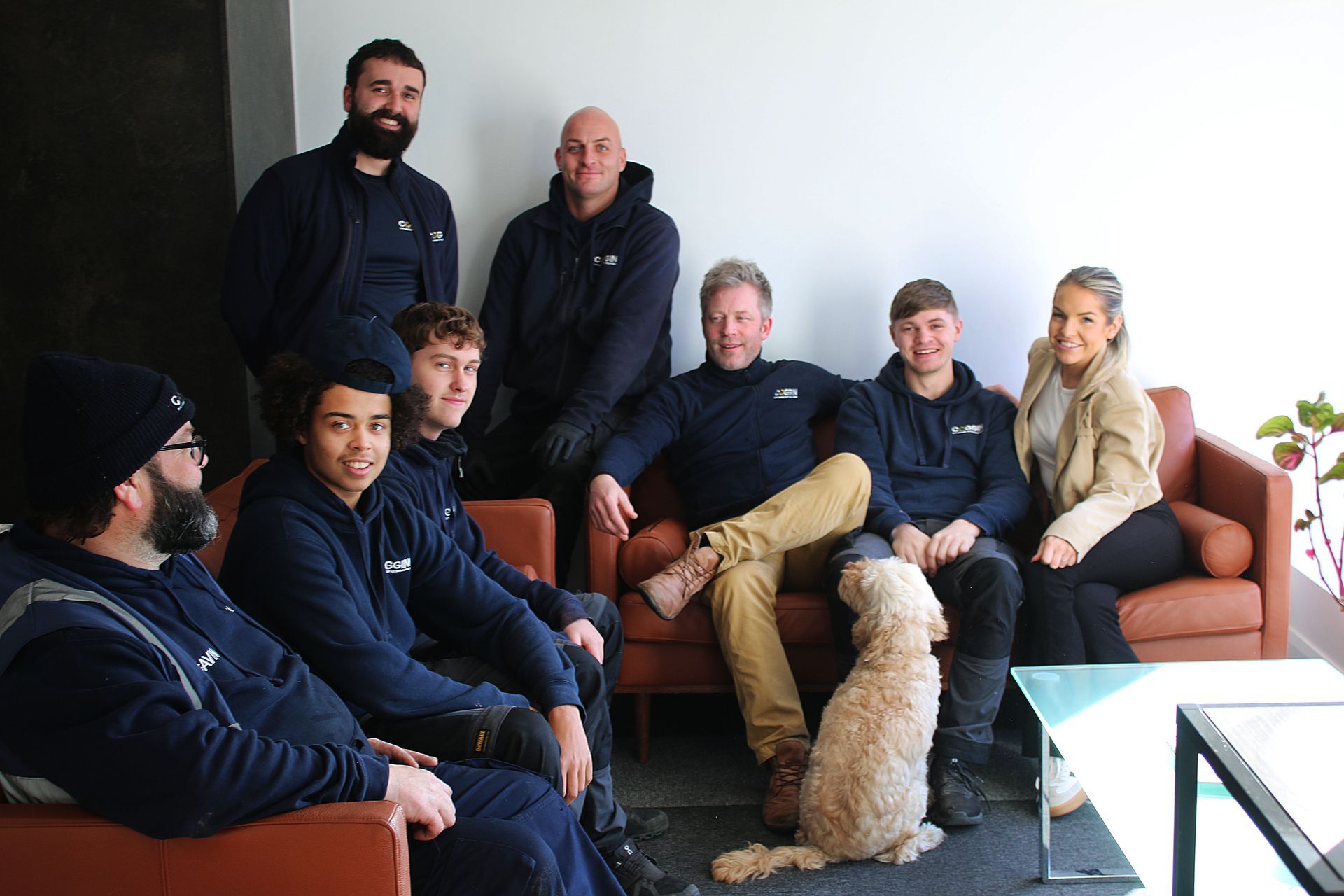
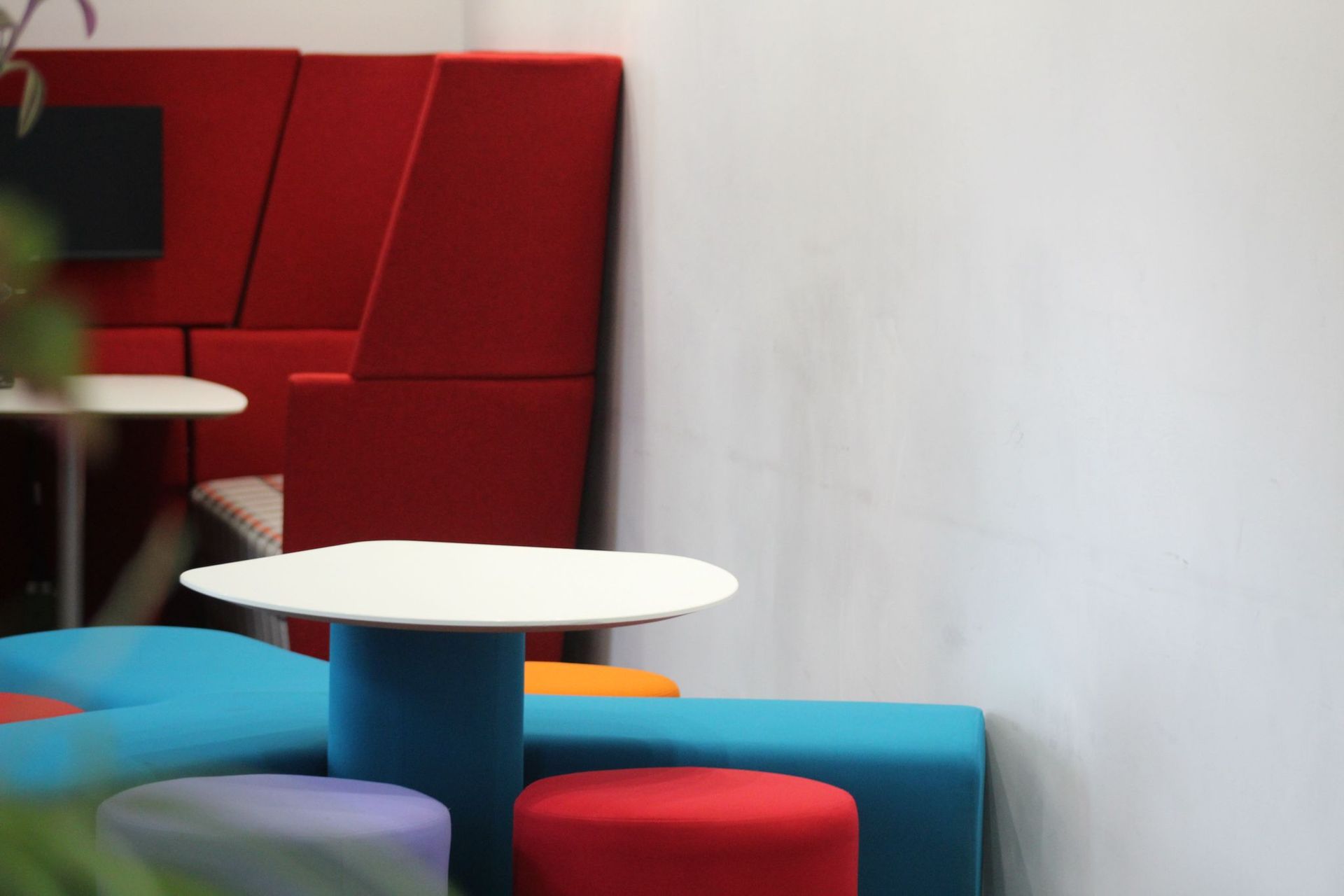
Furnishing the Future: Why Refurbished Furniture is the Smartest Choice for Schools and Universities

